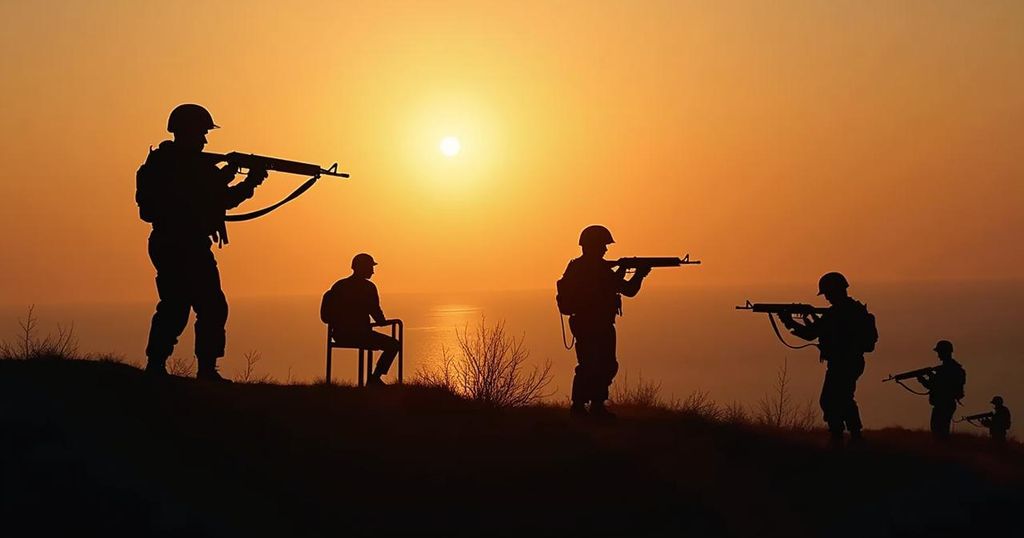The Israeli military has struck numerous Hezbollah targets in Lebanon following the confirmed death of Hassan Nasrallah, Hezbollah’s leader, leading to words of vengeance from Iran. US President Biden has described Nasrallah’s killing as justice, urging a ceasefire as tensions escalate. At least 33 fatalities have been reported in Lebanon due to the ongoing military operations.
On Sunday, the Israeli military reported that it had targeted a significant number of Hezbollah facilities in Lebanon within the past 12 hours, specifically targeting launchers designated for attacks against Israel. This escalation follows the confirmation of the killing of Hezbollah’s longtime leader, Hassan Nasrallah, which occurred a day prior. The Iranian leadership has reacted vehemently, with Supreme Leader Ayatollah Ali Khamenei stating that Nasrallah’s death “will not go unpunished” and has declared a period of five days of public mourning. United States President Joe Biden has characterized Nasrallah’s assassination as a necessary act of justice, referring to the long history of violence attributed to the group. He has also reiterated the urgent need for a ceasefire between Israel and Hezbollah amid escalating tensions in the region. Key developments include the Israeli army’s confirmation on Saturday of Nasrallah’s elimination through an airstrike executed on Friday in Beirut. Hezbollah has confirmed his death, asserting its commitment to continuing its resistance against Israeli actions. Prime Minister Binyamin Netanyahu remarked that this pivotal moment will significantly alter the regional power dynamics for years ahead. In the aftermath of the airstrike, several other notable Hezbollah figures, including Ali Karki, who commanded the southern front, were reported killed. The Lebanon health ministry has stated that at least 33 individuals were killed, with approximately 200 others sustaining injuries as a result of ongoing Israeli strikes against Hezbollah sites in Lebanon.
The recent conflict has escalated dramatically with Israel’s targeted attacks on Hezbollah, a Lebanese militant group supported by Iran. Following the assassination of Hassan Nasrallah, a prominent figure in Hezbollah, tensions have risen sharply, with retaliatory threats from Iran and continued military engagement from Israeli forces. This situation underlines the fragile nature of Middle Eastern politics, especially involving key players like Iran and Israel, both of whom have vested interests in the region’s stability and power structure. The implications of Nasrallah’s death are profound, as they potentially shift the balance of power among militant groups opposing Israel, drawing international attention to the unfolding crisis.
In conclusion, the assassination of Hassan Nasrallah marks a pivotal point in the ongoing conflict between Israel and Hezbollah, with significant implications for regional stability. The Israeli military’s actions and Iran’s commitment to avenge Nasrallah’s death suggest a challenging and unpredictable future. The United States’ call for a ceasefire indicates awareness of the potential for broader conflict, stressing the urgent need for resolution. As these developments unfold, the situation remains fluid, warranting close observation from international observers.
Original Source: www.france24.com







